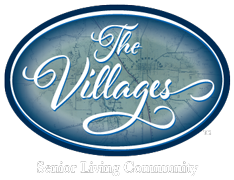Deciding to move to a senior living community is a major life decision. At first, it’s easy to feel overwhelmed by the many different care options, such as independent living and memory care.
If your loved one wants to stay independent and simplify their lifestyle, independent living can enhance their freedom with convenient housekeeping and maintenance while providing a calendar full of events.
If your loved one is living with cognitive decline, memory care can provide professional support to help preserve your loved one’s dignity and enhance their quality of life.
If you’re unsure of your options, take our lifestyle questionnaire to better understand which lifestyle suits you!
What Is Independent Living?
Owning your own home can be rewarding, but it can often be overwhelming. You need to consider repairs, maintenance, cleaning, and more. Over time, these everyday tasks can add up and become more trouble than they’re worth. For older adults who want to spend their time doing things they enjoy, regular housekeeping and maintenance can interrupt their daily routine.
This is when independent living becomes an excellent choice. This senior living lifestyle is designed for seniors looking to downsize and simplify their lifestyle. Independent living offers a maintenance-free lifestyle for those looking to focus on what truly matters to them.
Senior living communities also offer plenty of amenities and services to make the most of your loved one’s freedom. There are also plenty of social opportunities, like different classes and activities, to make it easier for residents to connect with each other.
In independent living, your loved one can pursue their passions and enjoy their hobbies every day. Independent living focuses on offering a simpler, stress-free life in a community that feels like home.
Who Should Move to Independent Living?
With a supportive and empowering environment, independent living can help many people thrive. If your loved one enjoys staying independent but wants to simplify things, independent living might be the right choice.
If you’re unsure about whether or not they should consider this change, try asking your loved one:
- Are you looking to reduce the responsibilities of home maintenance?
- Do you want to pursue more leisure activities and social opportunities?
- Are you looking for a community that offers convenience and safety?
- Do you want access to amenities that promote a healthier lifestyle?
- Are you interested in living in a community with like-minded peers?
In independent living, they can enjoy every day doing the things they love—without worrying about maintenance, repairs, or any other burdens of homeownership. These communities are designed to balance independence with support.
What Is Memory Care?
If your loved one is dealing with complex cognitive changes, they may need specialized care. Conditions like Alzheimer’s disease and other types of dementia can be extremely complicated, making daily life a little more challenging. Since dementia is progressive, it also worsens over time, requiring a compassionate, tailored approach to caregiving.
Memory care is a senior living lifestyle designed to support seniors living with cognitive challenges. Memory care provides an environment that truly seeks to understand your loved one’s needs. With a mix of professional caregivers, structured routines, cognitive therapy programs, and other specialized services and amenities, memory care offers a unique approach to professional care.
Warmth, respect, and comfort are at the core of memory care—both for residents and their families. Every detail works toward helping residents thrive in a home-style environment.
When Is It Time for Memory Care?
Dementia and other types of memory impairment can make daily life challenging, often posing safety concerns. The signs of cognitive decline are often difficult to recognize, developing slowly and subtly.
If you’re worried about a loved one’s cognitive abilities, try to watch out for:
- Difficulty managing daily tasks, such as cooking or paying bills
- Trouble remembering familiar people, places, or events
- Periods of wandering or appearing lost, even in once-familiar settings
- A noticeable increase in anxiety, confusion, or frustration
- Increased neglect of personal hygiene or dressing appropriately
When these signs start to appear, it might be time for a change. A move to memory care can give your loved one an environment that can help preserve their dignity and promote their safety. The dedicated teams in memory care are trained to better understand the needs of residents living with dementia.
Find the Right Community Today
Choosing a senior living community is about finding a place where care, comfort, and connection come together. Your loved one is unique, and their future home should meet their specific needs and treat them as the valuable person they are!
At The Villages of Murfreesboro, our team is here to help you explore your options. We’re ready to help you through this transition and give your loved one their new home. Book a tour with us today and discover how senior living can help your loved one thrive!




